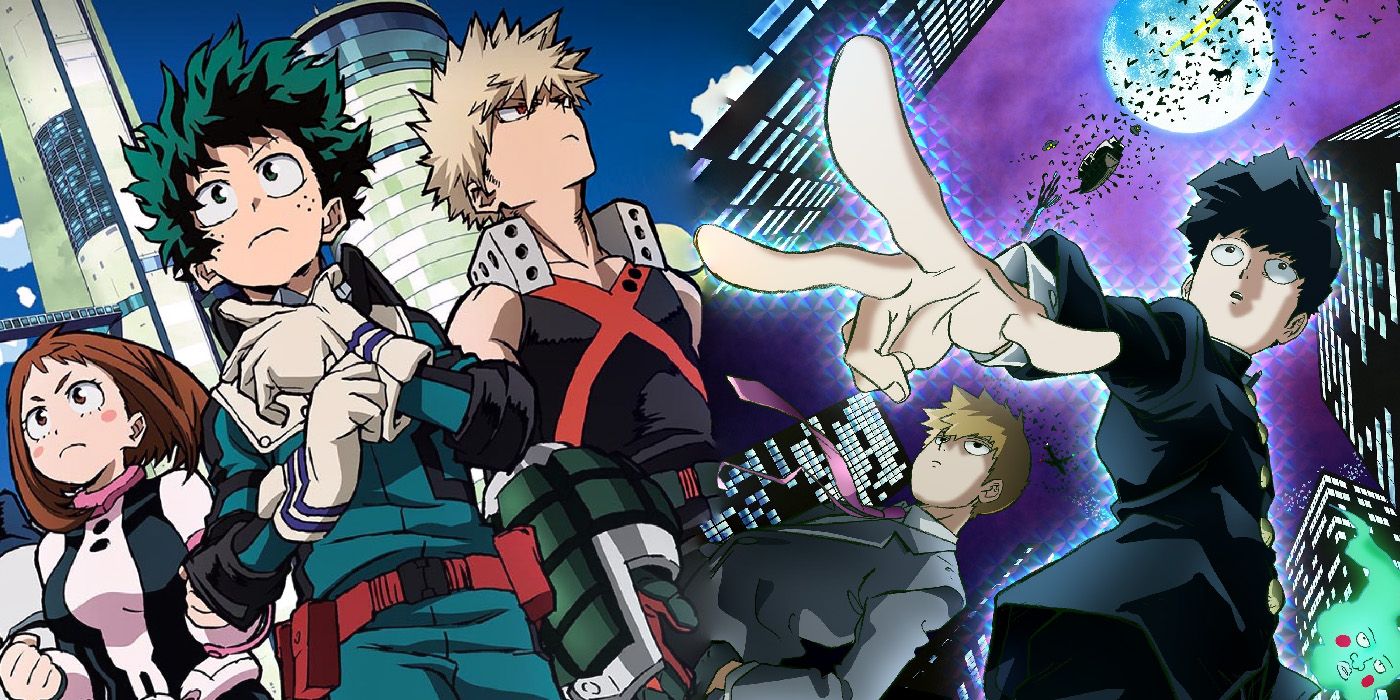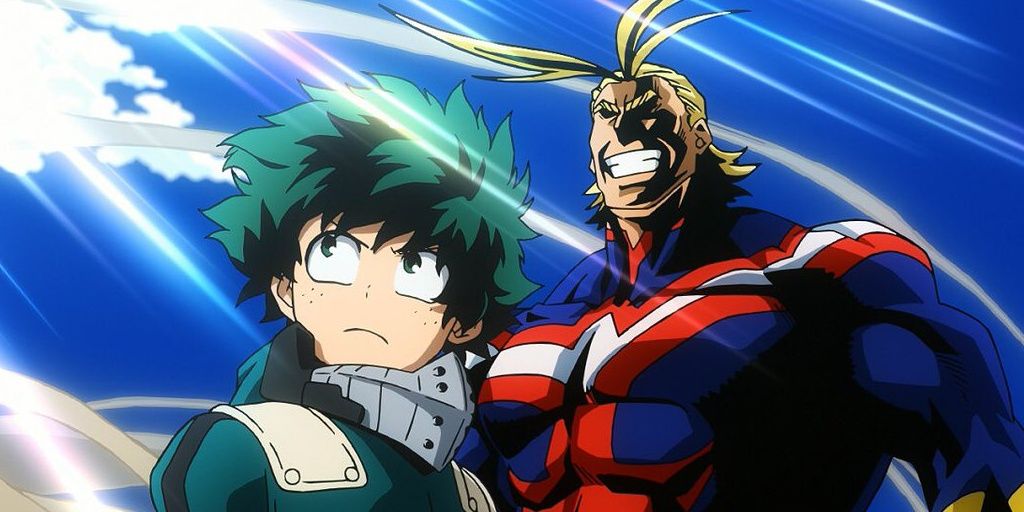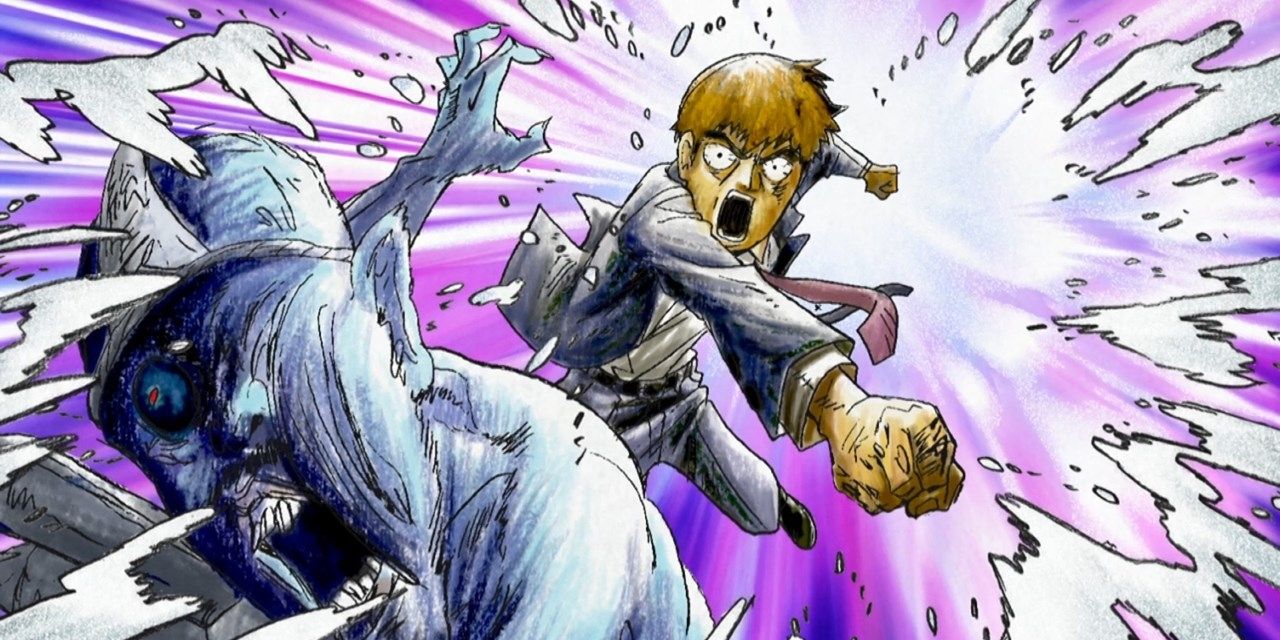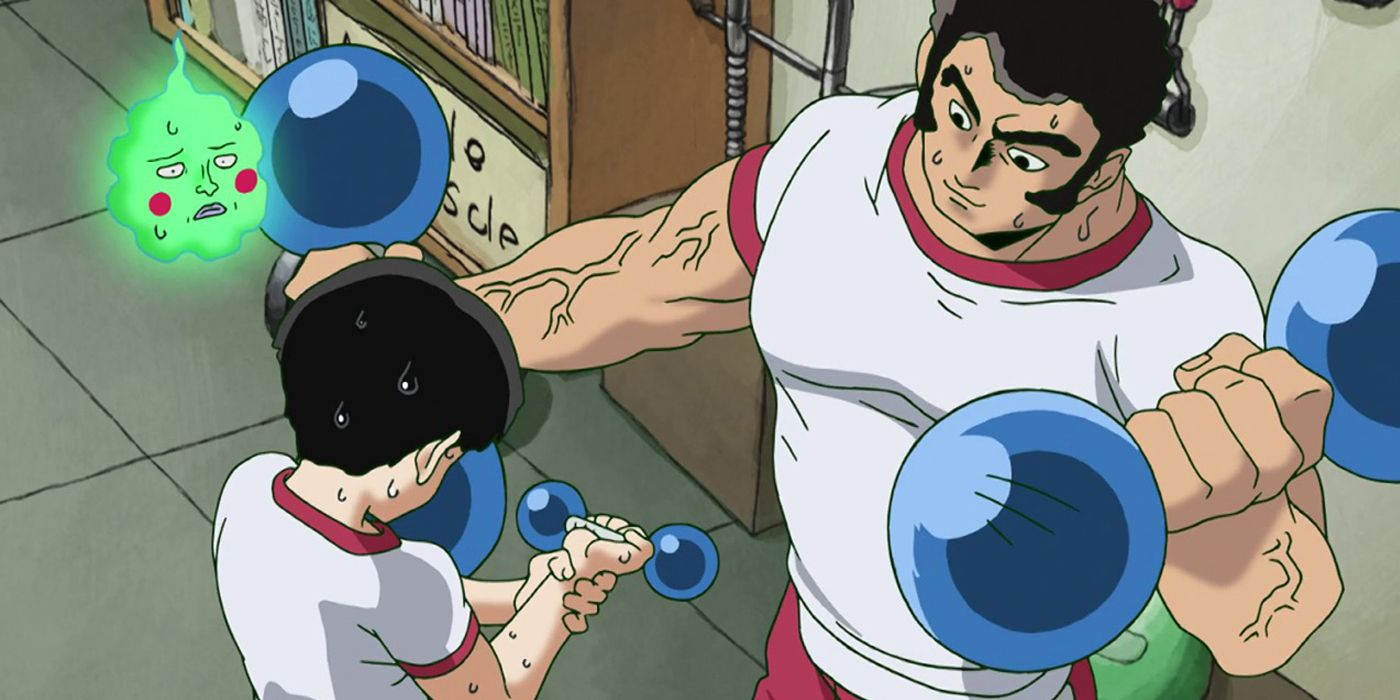Since the end of Naruto, one of the most popular shonen series has been My Hero Academia, which is about a society of superheroes. It focuses particularly on Deku, a teenager who dreams of becoming the number one hero after being inspired by his idol, All Might. The popularity of My Hero Academia has made it a breakthrough success, watched by many outside of anime's usual fandom.
Mob Psycho 100, on the other hand, is a more niche anime that is highly lauded by its hardcore fanbase, but almost entirely unknown beyond the anime community. It follows the character of Mob, a middle-school boy born with very powerful psychic abilities. Although the show has the trappings of a power fantasy-heavy shonen anime, it defies all expectations as it evoles; heading instead in a direction that, although less climactic as the big fights of My Hero Academia, ends up feeling more powerful and emotionally hard-hitting.
Mob Psycho subverts the many tropes expected of a typical shonen series, while My Hero Academia thrives on them. The best way to explain how is by comparing their two lead protagonists. Unlike the people of his world who are blessed with unique abilities known as Quirks, My Hero Academia's Deku was born Quirkless. Due to this, he is downtrodden by the realization that he won't be able to become the next All Might, Japan's superheroic Symbol of Peace. However, this changes when All Might catches a glimpse of Deku's potential and, impressed by his shonen protagonist-like behavior, decides to make him the successor of his power. Deku is, therefore, the embodiment of the "chosen one" archetype. Instead of being a person who isn't deemed "special" by the standards of his society, he is gifted with the power to become who he wants. He might work hard to hone and use this power, but he's still working at a considerable advantage with it.
Mob Psycho 100's Mob is the antithesis of this. For one thing, looks bland, unlike the more unique-looking protagonists of other similar anime. He is born with natural psychic powers, but instead chooses to improve himself through hard work and rely on his gifts as little as possible. This is mainly because a traumatic childhood event made him realize that his powers are dangerous, and they don't make him better than other people. He doesn't have the ambition of becoming the best psychic in the world; instead, he struggles with typical middle-schooler problems, such as having a crush on a girl, longing to be popular or wanting to develop muscles. Instead of being a superhero through his powers, he tries his hardest to simply get along with normal people. He wants to be successful through his own hard-earned abilities, and not natural-born or handed-down gifts.
Mob Psycho 100 shows that no one is better than anyone else and that everyone can be the protagonist of their own lives. If anything goes wrong, they have the ability within themselves to overcome it without having to rely on a superhero to save the day. Whereas My Hero Academia tends to reward some of its characters for having more self-centered ideals of heroism, like Bakugo.
My Hero Academia has many other areas where it relies on standard tropes instead of doing something new. The series' prime antagonist, All For One, was a typical overpowered villain that was evil for the sake of it. That isn't to say, though, that My Hero Academia hasn't produced more nuanced villains. Stain, for instance, whose ideology stands against everything the heroes hold dear. But more often than not, most of its antagonists are usually one-note and simple.
Mob Psycho 100's villains are all driven by selfishness, thinking their powers give them the ability to become someone superior, with the vast majority of them dreaming of world domination or attaining the status of the most powerful psychic. That is until they encounter Mob, and not just become humbled, but also learn to see society in a different light, one where humans are only special when everyone works together to achieve greater things. It is counter to the idea of individualism that My Hero Academia, and many other standard shonen series, endorse. Rather than arcs ending with the hero smashing the villains away to save the day, in Mob Psycho 100, the villains are stopped when Mob manages to steer them away from their own delusions and hatred.
The core difference between the two shows can perhaps best be summarized by what each tries to accomplish with its narrative. My Hero Academia provides a world where special people are celebrated and rewarded for their inherent heroism. It is a story about heroes kicking butts and achieving grandiose ambitions. Mob Psycho 100 shoots all of this down; instead, providing a much more down-to-earth message of humility, self-accountability and the drive for self-improvement in other, non-physical ways, which may be a far more achievable message for its its shonen demographic.
This is perhaps what puts Mob Psycho 100 above My Hero Academia as a shonen anime. The latter is still a very enjoyable show that does what it does well, however, it doesn't offer anything new or insightful to its viewers. Mob Psycho 100 is a deconstruction of the very things My Hero Academia stakes its popularity on, and one of the most unique shonen anime to come around in a long time.




